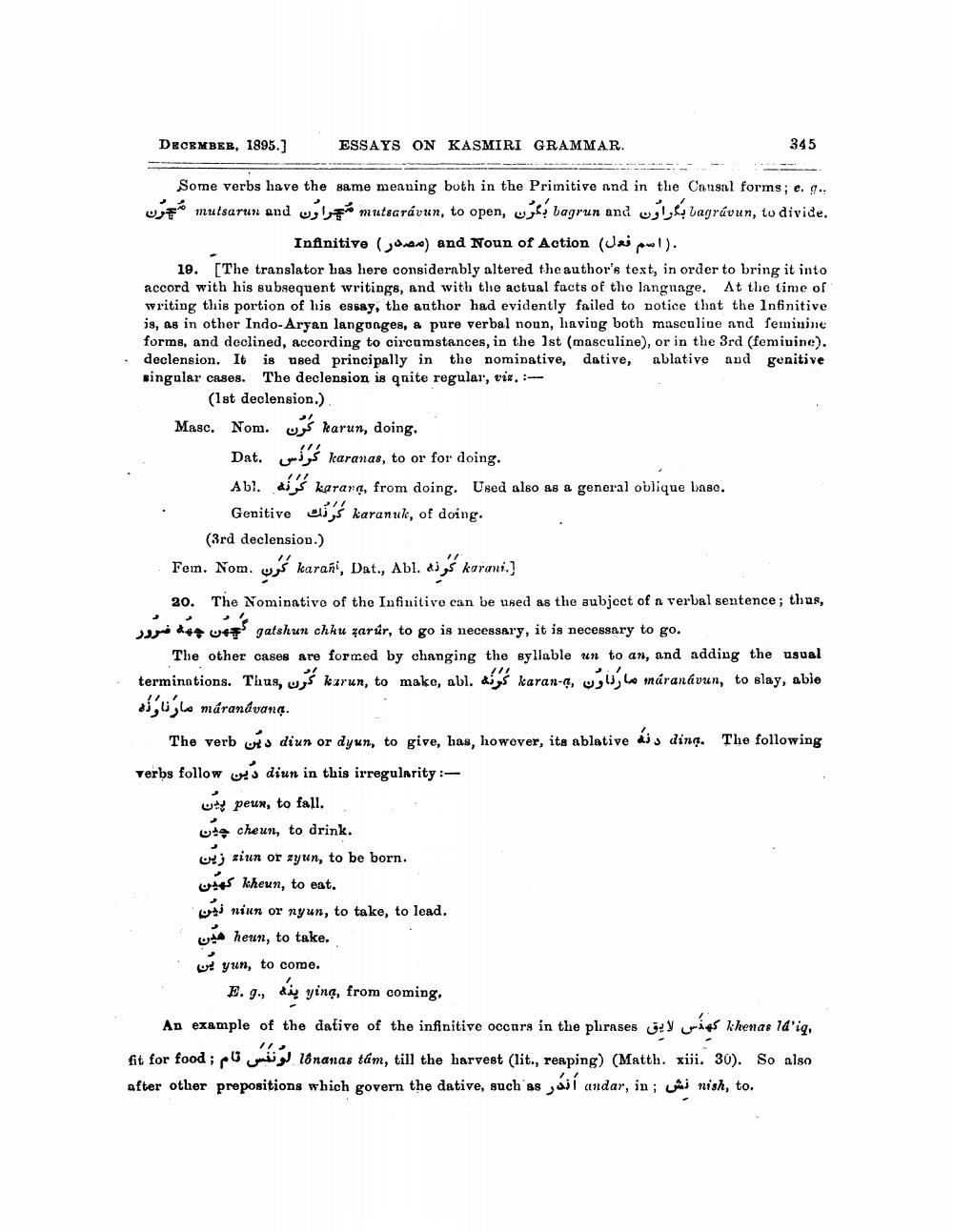________________
DECEMBER, 1895.)
ESSAYS ON KASMIRI GRAMMAR
345
Some verbs have the same meaning both in the Primitive and in the Causal forms; e. q.. WUF mutsarun and wylo nutsarávun, to open, wyle bagrun and Ogie vagrávun, to divide.
Infinitive (wers) and Noun of Action (Jes pul). 19. [The translator has here considerably altered the author's text, in order to bring it into accord with his subsequent writings, and with the actual facts of the language. At the time of writing this portion of his essay, the author had evidently failed to notice that the Infinitive is, as in other Indo-Aryan languages, & pure verbal noun, having both masculine and feminine
forms, and declined, according to circumstances, in the 1st (masculine), or in the 3rd (femivine). • declension. It is used principally in the nominative, dative, ablative and genitive singular cases. The declension is quite regular", vix. :
(1st declension.) Masc. Nom. w karun, doing.
Dat. S karanas, to or for doing. Abl. as S karare, from doing. Used also as a general oblique basc.
Genitive uss karanuk, of doing.
(3rd declension.) Fein. Nom. wyś karañi, Dat., Abl. 23,5 karani.)
20. The Nominative of the Infinitive can be used as the subject of a verbal sentence; thus, Jeg ++ we gatshun chku zarûr, to go is necessary, it is necessary to go.
The other cases are formed by changing the syllable un to an, and adding the usual terminations. Thus, wys kurun, to make, abl. a'karan-, su La márankvun, to slay, abie
.marandvang مارناوه
The verb wis diun or dyun, to give, has, however, its ablative ásy ding. The following verbs follow us diun in this irregularity :
w peur, to fall. wie cheun, to drink. wj ziun or zyun, to be born. wits kheun, to eat. U niun or nyun, to take, to lead. who heun, to take. w? yun, to come.
E. g., dá yina, from coming, An example of the dative of the infinitive occurs in the phrases comúns kkenas Id'iq, fit for food ; pl3 comes . 18nanas tâm, till the harvest (lit., reaping) (Matth. xiii. 30). So also after other prepositions which govern the dative, such as ,aji andar, in; Mi nish, to.




